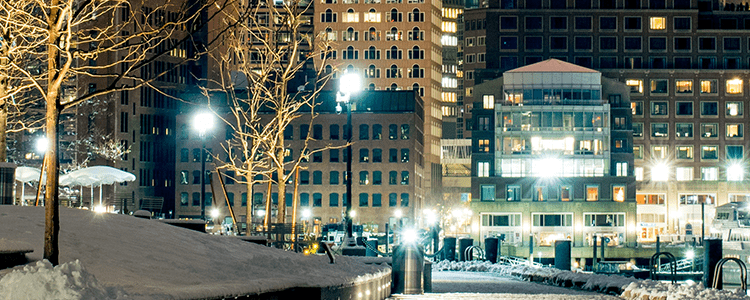Massachusetts
Cannabis in Massachusetts
Common questions about cannabis in Massachusetts
- Is marijuana legal in Massachusetts?
- Where can I buy marijuana in Massachusetts?
- How much marijuana can I buy in Massachusetts?
Get your medical marijuana card online!

Massachusetts Cannabis Laws
Is Weed Legal in Massachusetts?
Yes. In 2012, Massachusetts became the 18th state to legalize the medical use of marijuana with the passing of Question 3. With the success of the medical program across the state, the Massachusetts government put the legalization of recreational marijuana on the 2016 ballot. In November of 2016, Massachusetts voters approved Question 4, which legalized recreational marijuana across the state. In 2018, licensed marijuana retailers opened their doors to adults over the age of 21. As marijuana continues to grow in the state, understanding the constantly evolving nature of Massachusetts weed laws is more important than ever.
Knowing your rights and limitations as you explore the new cannabis culture in Massachusetts will keep you safe and secure as you enjoy some of the finest greens on the East Coast.
Buying Marijuana in Massachusetts
If you want to purchase recreational marijuana in the state of Massachusetts, you must be 21 or older with a valid form of government identification. Residents of the state over the age of 18 can purchase medical marijuana with a valid physician’s certification.
Buying Marijuana at a Recreational Dispensary
Although recreational marijuana was legalized in Massachusetts under Question 4, certain local municipalities are still able to ban the sale of marijuana in their area. To date, there are dozens of licensed marijuana retailers across the state, allowing you to easily find safe, legal weed in your city.
When going to a licensed retailer, make sure you bring a government-issued photo-ID with you. If you are not at least 21 years of age, you will need a physician’s recommendation to purchase marijuana. Customers are able to buy a wide variety of products from any retail location, including edibles, concentrates, tinctures or oils.
Using a Marijuana Delivery Service in Massachusetts
If you are a medical marijuana patient in Massachusetts, you can have marijuana legally delivered to your doorstep. However, it’s important to note that recreational marijuana delivery services have not been legal until early 2019, when the Massachusetts government authorized the creation of marijuana delivery services in the state. The delivery service program would limit applicants for the first two years to businesses who fit under “the state’s social equity and economic empowerment provisions.” This means that the state will give priority to small marijuana businesses and entrepreneurs for the few available delivery licenses.
Store Hours
Laws regarding the legal operating times of a recreational marijuana business are left up to the city government. Some cities allow dispensaries to stay open as late as 10 PM, while others force stores to close their doors by 5 PM. Check here to find the hours of any dispensary in Massachusetts.
Purchasing Restrictions
When purchasing marijuana in Massachusetts, you are legally allowed to buy up to one ounce (28 grams) of flower or the equivalent of 5 grams of concentrates. This is also the maximum amount of marijuana you are allowed to carry legally in the state, so make sure you clean out your car before making any additional large purchases. Customers may also buy a combination of flower, concentrates and edibles but the total cannot add up to more than one ounce. Recreational edibles in the state are capped at 5mg of THC per serving, with no more than 100mg per package.
Available Products
Having a working knowledge of the available marijuana products at your chosen dispensary can help you make informed purchases on your first visit. In any retail location, expect to find a wide variety of flower, pre-rolled joints, edibles, concentrates, THC-infused products and more. Due to differing city regulations, the products in one dispensary may vary from the next. Check online menus before making a trip to a new dispensary.
Taxes on Marijuana in Massachusetts
Recreational Marijuana Taxes
When the ballot measure ‘Question 4’ was originally approved by voters in 2016, the recreational tax rate for marijuana was capped at 12%. However, arguments over the taxation limits on recreational marijuana caused a delay in the rollout of legal retail stores in the state. After a year of debate, the state legislature increased the tax cap on recreational marijuana to 20%. The state sales tax did not change from 6.25% but the state excise tax increased from 3.75% to 10.75%. The new law permits cities to tax recreational marijuana up to an additional 3%, so the total taxes you pay may differ depending on what city you are in.
Medical Marijuana Taxes in Massachusetts
Medical marijuana patients in the state pay no taxes when purchasing products, while recreational users are paying up to 20%. Essentially, this means while medical patients pay $80 for $80 worth of product, a recreation customer can pay up to $96 including associated taxes.
Possession
In Massachusetts, you are allowed to legally carry up to one ounce of marijuana flower or 5 grams of concentrates. You may store up to 10 ounces of marijuana in your home but anything over 1 ounce must be stored in a locked area (i.e. a safe, locked room, etc.). Any legal aged adult is also permitted to grow up to 6 live plants in their home.
Using Marijuana in Massachusetts
While it is legal to buy and possess marijuana in Massachusetts, it is not legal to consume any products in a public area. Unfortunately, the number of places you can’t use marijuana far outnumber the number of places you can. Knowing the areas in Massachusetts where it is legal to consume marijuana will help keep you safe while you enjoy some weed in The Bay State.
Areas in Massachusetts that DO NOT allow the use of marijuana:
- In your car
- At a local park
- At the beach
- Federal lands (national parks, national forests)
- On a school campus
- Any public place
Areas in Massachusetts that DO allow the use of marijuana:
- Within your private residence
- Outside a private residence, as long as it is out of the view of the public.
- In your ‘smoker-friendly’ hotel room (first check the rules specific to your hotel)
Smoking on Federal Lands
While recreational marijuana has been legalized in the state, consuming it on federal lands makes it a federal crime. For this reason, using any marijuana product on federal land, including any national park, forest, monument, etc. could get you in serious trouble. Even if you are not on federal land, using marijuana in a public place is always illegal.
Medical Marijuana in Massachusetts
In 2012, Mass voters approved ‘Question 3’ in a landslide victory with 63% of the electorate supporting the legalization of medical marijuana. With the passage of Question 3, eligible Massachusetts citizens 18 and over can now purchase marijuana to meet their medical needs. While a medical marijuana card is no longer required to purchase legal marijuana products in the state, it may be a good idea to hold onto your card a little longer. Medical marijuana patients remain exempt from the steep taxes imposed on recreational marijuana so the yearly fee to maintain your medical card may pay for itself after a few visits. Medical marijuana patients also do not need to worry about their local dispensary running out of products, as the state mandates that 35% of medical-grade cannabis be reserved for medical patients. If you utilize delivery services as a medical patient, keeping your medical marijuana card is a must. Currently, delivery services can only serve medical marijuana patients in Massachusetts.
Out of State Medical Cards
While some states in the US will honor a medical recommendation from another state, Massachusetts does not. Recreational marijuana will still be available to any adult 21 or older.
Transporting Marijuana in Massachusetts
How to Transport Marijuana in Massachusetts
Similar to alcohol, you cannot drive with an “open container” in your car. Any marijuana in your vehicle must be kept in a sealed container, out of reach of the driver. The State of Massachusetts recommends storing the container in the trunk of your car or in a locked glove compartment.
Driving While Under the Influence of Marijuana
Unlike some states, Massachusetts has no allowable limit of blood THC levels for driving. As a result, any amount of THC in your blood can make operating a motor vehicle illegal in the state. When using any type of marijuana product, it is best to avoid driving for a few hours, opting instead for a bus or ride-share app.
Driving Across State Lines with Marijuana
Because cannabis is federally illegal, you are breaking the law anytime you cross state lines with marijuana of any kind. Even if the state you are traveling to has legalized recreational or medical marijuana, taking it across state lines is still illegal. Ditching your extra weed before you drive or fly to another will ensure that you don’t run into any legal trouble while in Massachusetts.
Growing Marijuana in Massachusetts
If you prefer home-grown to store-bought marijuana, you may legally grow up to 6 plants at a time in your home as long as you are 21 years of age or older. The plants must be grown in an area of your home that is not visible to the public. If you are renting a home, landlords may have their own set of restrictions when it comes to growing marijuana. Each household is limited to a maximum of 12 plants, meaning that even if you have 3 roommates, you cannot have more than 12 plants. Every city has different laws regarding marijuana growing operations, so check online for the rules and restrictions specific to your area.




